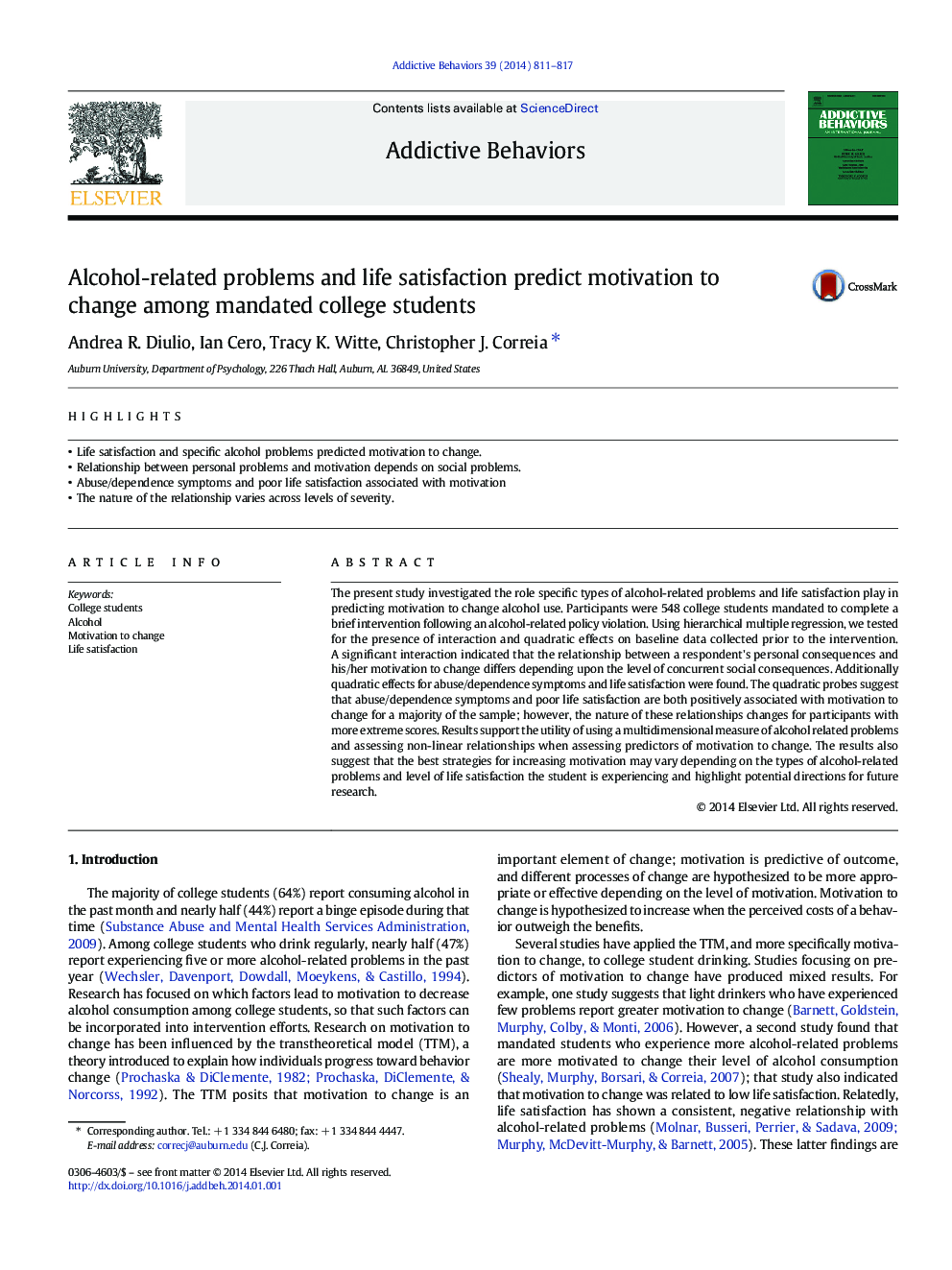| Article ID | Journal | Published Year | Pages | File Type |
|---|---|---|---|---|
| 899076 | Addictive Behaviors | 2014 | 7 Pages |
•Life satisfaction and specific alcohol problems predicted motivation to change.•Relationship between personal problems and motivation depends on social problems.•Abuse/dependence symptoms and poor life satisfaction associated with motivation•The nature of the relationship varies across levels of severity.
The present study investigated the role specific types of alcohol-related problems and life satisfaction play in predicting motivation to change alcohol use. Participants were 548 college students mandated to complete a brief intervention following an alcohol-related policy violation. Using hierarchical multiple regression, we tested for the presence of interaction and quadratic effects on baseline data collected prior to the intervention. A significant interaction indicated that the relationship between a respondent's personal consequences and his/her motivation to change differs depending upon the level of concurrent social consequences. Additionally quadratic effects for abuse/dependence symptoms and life satisfaction were found. The quadratic probes suggest that abuse/dependence symptoms and poor life satisfaction are both positively associated with motivation to change for a majority of the sample; however, the nature of these relationships changes for participants with more extreme scores. Results support the utility of using a multidimensional measure of alcohol related problems and assessing non-linear relationships when assessing predictors of motivation to change. The results also suggest that the best strategies for increasing motivation may vary depending on the types of alcohol-related problems and level of life satisfaction the student is experiencing and highlight potential directions for future research.
